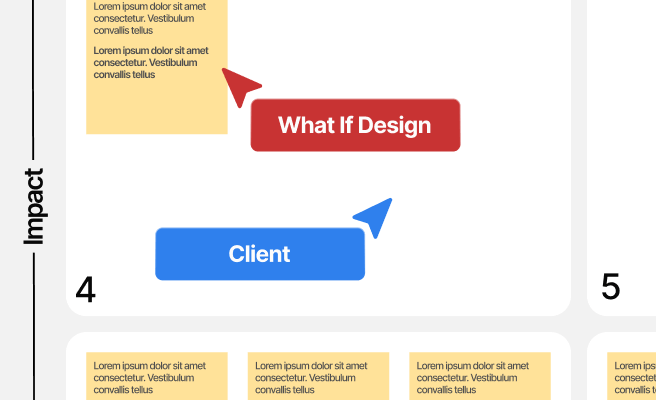Data Analysis
<p>Data analysis is a critical process in digital design, especially in the climate-tech sector, where understanding complex datasets can drive impactful innovations. It involves inspecting, cleansing, transforming, and modeling data to discover useful information, inform conclusions, and support decision-making. For climate-tech startups, effective data analysis can provide insights that enhance product development and user engagement.</p>
<p>Data analysis is not a new concept. Historically, organizations have used data to improve operations and predict trends. In the context of climate tech, data analysis enables companies to optimize processes like carbon capture, monitor environmental impact, and improve sustainable practices. The ability to analyze large sets of data efficiently can significantly reduce operational bandwidth and enable better decision-making.</p>
<h2>Components of Data Analysis</h2>
<p>Data analysis typically involves several key components:</p>
<ul>
<li><strong>Data Collection:</strong> Gathering relevant data from various sources such as sensors, user interactions, and external databases.</li>
<li><strong>Data Cleaning:</strong> Removing errors, duplicates, and inconsistencies to ensure the data is accurate and reliable.</li>
<li><strong>Data Transformation:</strong> Converting data into a usable format, which may involve normalization, aggregation, and other techniques.</li>
<li><strong>Data Modeling:</strong> Using statistical models and algorithms to identify patterns and trends within the data.</li>
<li><strong>Data Visualization:</strong> Presenting data in graphical formats to make insights easily understandable.</li>
</ul>
<h2>Benefits of Data Analysis in Climate Tech</h2>
<p>For climate-tech companies, data analysis offers numerous benefits:</p>
<p><strong>1. Improved Decision-Making:</strong> By analyzing data, companies can make informed decisions that enhance product design and sustainability efforts. For example, a company like <span style="color: #2896FF"><u><a href="https://www.tesla.com">Tesla</a></u></span> uses data analysis to optimize battery performance and energy consumption.</p>
<p><strong>2. Enhanced User Experience:</strong> Understanding user behavior through data allows for the creation of more user-centric designs. This can lead to higher user satisfaction and retention. </p>
<p><strong>3. Increased Efficiency:</strong> Analyzing operational data helps identify inefficiencies and areas for improvement, leading to cost savings and better resource management.</p>
<h2>Challenges in Data Analysis</h2>
<p>Despite its benefits, data analysis comes with several challenges:</p>
<p><strong>1. Data Quality:</strong> Ensuring that data is accurate and free of errors is critical. Poor-quality data can lead to incorrect conclusions.</p>
<p><strong>2. Data Integration:</strong> Combining data from various sources can be complex, especially when dealing with different formats and systems.</p>
<p><strong>3. Technical Expertise:</strong> Effective data analysis requires specialized skills and knowledge, which can be a barrier for small companies with limited resources.</p>
<h2>Practical Applications</h2>
<p>Climate-tech companies can leverage data analysis in various practical applications:</p>
<p><strong>1. Predictive Maintenance:</strong> By analyzing data from equipment, companies can predict failures and perform maintenance proactively, reducing downtime and costs.</p>
<p><strong>2. Carbon Footprint Monitoring:</strong> Data analysis helps track and reduce carbon emissions, contributing to environmental sustainability. For instance, <span style="color: #2896FF"><u><a href="https://www.climeworks.com/">Climeworks</a></u></span> uses data to optimize its carbon capture processes.</p>
<h2>Conclusion</h2>
<p>Data analysis is a powerful tool for climate-tech companies, enabling them to optimize operations, enhance user experiences, and drive sustainability efforts. By addressing challenges such as data quality and integration, companies can fully leverage the potential of their data to achieve impactful results.</p> <p>Increase user engagement that converts your demos into sales. Optimise your UX strategies with our audits.
<p>Fill out the <a href="https://tally.so/r/n97pxQ" style="color:#2896FF; text-decoration:underline;">UX Audit form</a> to get started. Ready to discuss your needs? <a href="https://cal.com/akhilak/what-if-design?duration=25" style="color:#2896FF; text-decoration:underline;">Book a consultation call</a> with us today.</p></p>

Let's scale your impact with great design.
Free consultation, no sales pitch
Thank you! Your submission has been received!
Oops! Something went wrong while submitting the form.
Let’s talk
Nothing great is built alone.
Let’s connect about your vision, our work and how we can collaborate.
Get in touch

